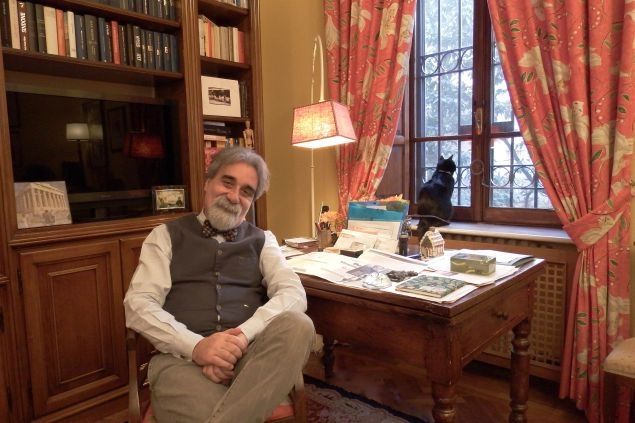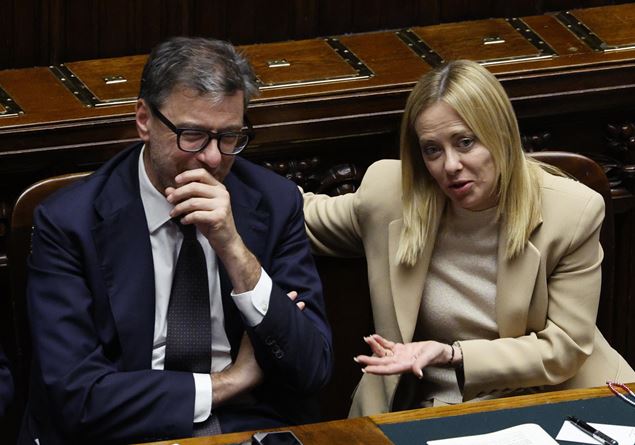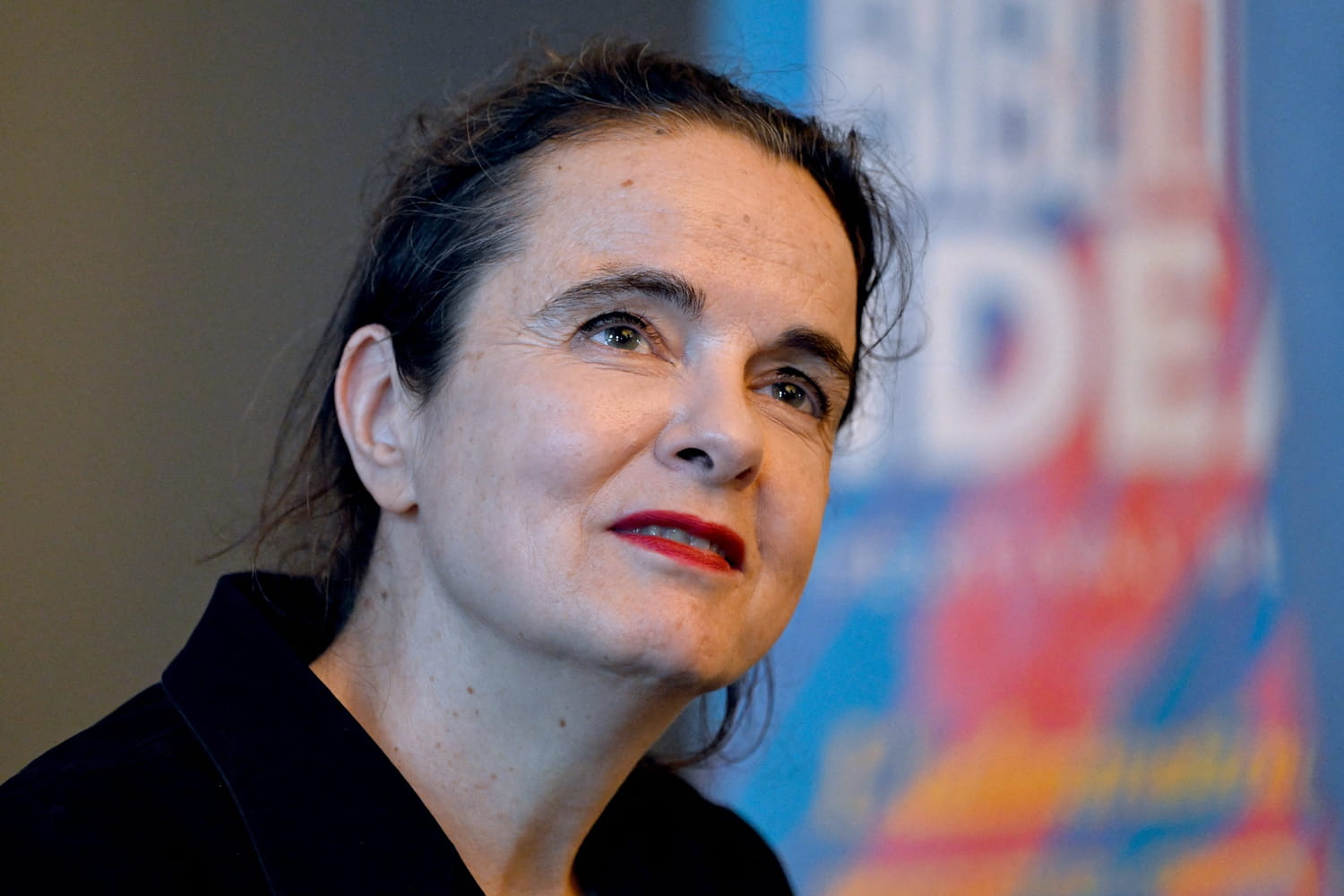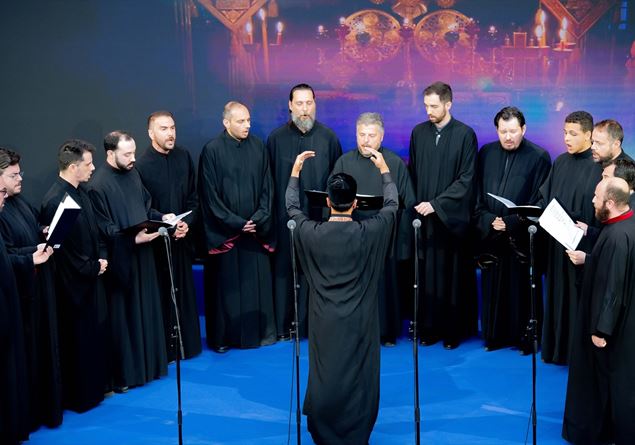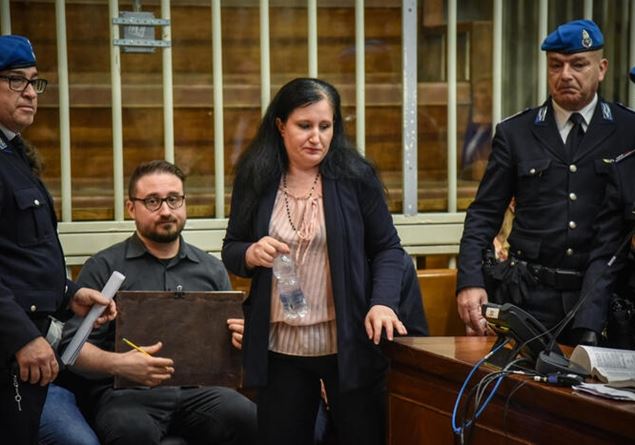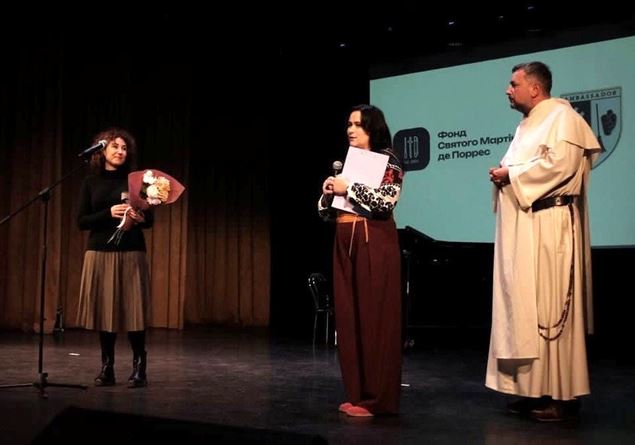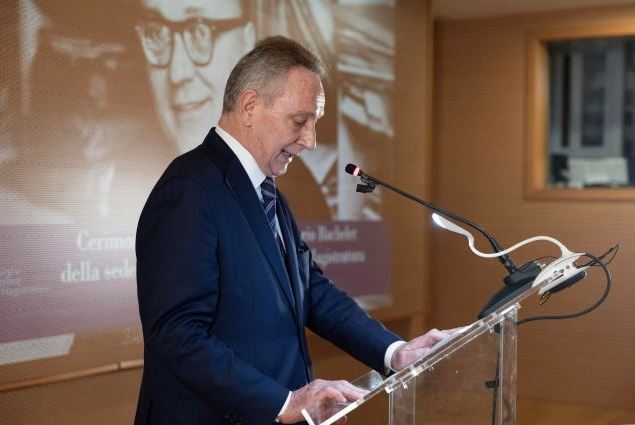The Patmos cave where San Giovanni had the vision of the apocalypse
The Greek island of Patmos, in the Dodecanese archipelago, is a cultured place of beauty, imbued with spirituality for the presence of the monastery of San Giovanni the theologian (Ágios Ioánis Theológos) and for the cave ofApocalypsewhere Giovanni received the revelations then collected in the last book of New Testament. At the time of the emperor Domitian Patmos was a place of punishment. We read in the incipit of‘Apocalypseof the most fascinating and mysterious books of the Bible: “Me, John, your brother and companion in the tribulation, in the kingdom and perseverance in Jesus, I was on the island called Patmos because of the Word of God and the testimony of Jesus”, writes the author of one
Religious pilgrimages site, populated by sanctuaries, churches, hermitages and convents, Patmos has been attracting elegant and discreet tourism for years. The island has been hosting an international chamber music festival since 2022 (with the artistic direction of the pianist Roberto Prosseda) who supports, involving musicians of an extraordinary level, a Sacred music festival now in its 23rd edition.
The 2025 edition of the Festival opens on 1 September with the performance of the Musicaeterna byzina choir, who will perform Byzantine hymns of praise and thanks, under the title Celestial hymn – Sweet celestial wine.
Founded by the charismatic Ellenic-Russian conductor Teodor Currentzis in 2018, the choir aims to rediscover the treasures of Byzantine musical culture, including the ancient Sacred Greek song. The choir is composed of the twelve best graduates of the Byzantine music schools of Greece. In addition to having many years of experience in Byzantine singing, each of them listens to this music since childhood and has taken a gradual path towards perfection.
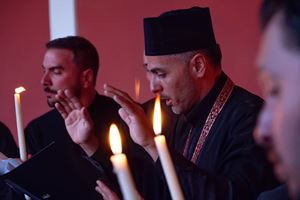
Interview with the Master of the Choir Antonios Kouttupis
Choir Master is Antonios Kouttupis, 45 years old, Cipriota, former pupil of the vocal department of the Rimsky-Korsakov State Conservatory of St. Petersburg and honorary singer of the Greek-Orthodox cathedral of San Giorgio in Venice.
Maestro Kouttupis, where does your passion for singing come from?
«I have to thank above all my mother, who is still a very spiritual person. It is she who prompted me to follow Byzantine music lessons from the fragile age of 11. Instead of playing football with other children or going to the disco, I remember that I was studying, I bought books, listened to Byzantine music boxes and I got my first diploma at the age of 16. I must say that it was a sincere, pleasant and aware decision on my part. In addition to this, I attended piano lessons, solfeggio and European music theory and, of course, being born on an island, I was swimming almost every day ».
How difficult is it to study Byzantine music?
«It is special music, not ordinary and not simple. It has its rules, its notes, its melodies, a perfect and complete musical system dating back to the 6th century. The key to perfection is dedication and patience ».
How was your study experience in St. Petersburg?
«I was lucky enough to be able to admire the precious works of Russian artists such as Dostoevsky, Pushkin, Čajkovsky and others, and to appreciate their deep art. It was then that I realized that I belonged to that group, or community of people who are looking for absolute truth in art, and I really wanted to enter that space of beauty. Being a student there is something special, which makes you a truly complete artist ».
What memories do you have the period spent in Venice?
«It was one of the most important pages of my life: Venice and Cyprus have centuries -old ties, from Otello and his castle to Famagosta (from where my parents come) to Ekaterina Cornaro, in Asolo, Venice and Cyprus! Since St. Petersburg is called ‘Venice of the North’, I found myself living and working in the ‘Venice of the South’, making my art and life even more beautiful!.
How is the collaboration with a demanding and charismatic musician like Teodor Currentzis, artistic director of his choir?
«With the master Currentzis we studied together. We have a common sense and a shared understanding of music, discipline and spiritual experiences. Working with him is simply a continuous discovery of depth ».
Can it be said that every performance is a spiritual experience, both for the executors and for the public?
«Yes, the choir is not any chorus. For me, the atmosphere that the choir must create, so that through music each of us can come in spiritual contact with our father and dialogue with him. Listening requires an inner and external metamorphosis is very important. They are not concerts where you come, listen, applaud and then return to the life of first. Every time I perform with the choir I undergo a very severe judgment. My will is to achieve perfection, without discounts and without rest! ».
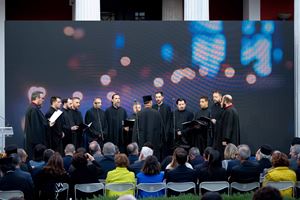
The Sacred Music Festival of Patmos
The program of the Sacred Music Festival this year will include Chamber music masterpieces inspired by sacred music, like the Quatuor pour la fin du tempps by Olivier Messiaen, performed by the “Dream Team” made up of Steven Isserlis, Pierre Genisson, Irène Duval and Maya Oganyan, e The last seven words of Christ by Franz Joseph Haydnin the version for string quartet entrusted to the Adorno quartet. The Greek soprano Eleni Lydia Stamello, will propose a recital dedicated to the Cantigas de Santa Maria together with the lutist Michael Eberle and the cellor Antoine Billet.
The Festival will end On September 7 with the second of the two concerts of the Armenian Chamber Choirdirected by Robert Mlkenyan, who will play the Armenian liturgy Patarag Music by Archimandrita Komitas (1869–1935).
“As with each edition, this year the festival will host on the island over seventy musicians and many musical instruments, Including a Fazioli tail piano that will be transported from one part to the other, facing steep climbs and narrow passages to reach the places of the concerts “declares Massimo Fino, executive director of the music festival of Patmos,” public and musicians will live a unique experience in which each note questions, enthusiastically, unites “.
